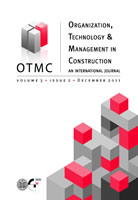Abstract:
Buildings cause 40% of total energy consumption, and 20% of CO2 emissions worldwide. In the European context, the main potential for the achievement of energy efficient built environment remains with the existing stock. This paper will present the life-cycle oriented renovation strategies for historic,
especially large social housing stock, in order to meet the increased requirements in terms of energy efficiency simultaneously
providing affordable housing and meeting the demands for monument conservation. Specific renovation-issues such as insufficient standard or size of housing units, demographic change (aging of society), thermal insufficiencies and partial obsolescence of building structure are bound to the age and typology of this specific stock. The developed strategies are based on the variations of façade-insulation technology and in further step on variation of building-hull refurbishment-level and energy system, applying the methodology of life cycle analysis (CO2-equivalent assessment) and calculation of amortization-periods for refurbishment-investment. The developed renovation strategies were evaluated in terms of cultural-historical,
ecologic and economic criteria.
The findings demonstrate the importance of operation-phase in the building life-cycle, which is crucial for the economic and ecologic impact causing the largest energy consumption and related CO2 emissions. Due to the very long payback periods for refurbishment in the context of social housing, incentives for owners as well as support for the use of more sustainable heating systems for the tenants are necessary.
|



 |
| 